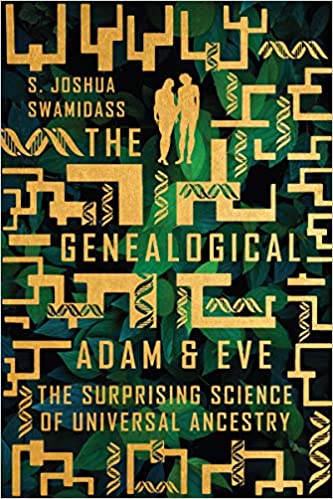Q. On human evolution is where your contribution to the discussion is helpful in various ways. But you seem to be saying that evolution applies to ‘humans’ outside the garden of Eden, but not to those inside it, not to Adam and Eve about whom you use the phrase de novo creation. I would suspect that your fellow scientists who are not Christians would call this special pleading. How would you respond to that critique?
A. My colleagues, to their credit, were largely positive, and even enthusiastic. They do not, usually, call it special pleading. The reason why is that the scientific argument I make is unassailable. The science is solid, and I didn’t twist or overstate the scientific case. The quality of our scientific argument matters to secular scientists, in the end, far more than our specific conclusions.
Ironically perhaps, primary arguments against a de novo creation of Adam and Eve are pushed by Christians, not secular scientists, based on theology and exegesis. I address this some in my book. In the end, the de novo creation of Adam and Eve becomes much like the Virginal conception of Jesus.
Do we trust Scripture? What does it teach? Science just isn’t the source of the challenge on this point any more.
This is an important finding, also, because it challenges the reasoning of just about everyone in the conversation. The Intelligent Design community explains their lack of progress in the scientific community due to an impenetrable anti-supernatural bias. But even several atheist scientists endorsed or gave positive reviews of my book.
Many creationists reject evolution because it conflicts with de novo creation. They can still reject evolution, but this is no longer a good reason to do so. Both evolution and the de novo creation of Adam and Eve can both be true at the same time. Again, oddly, most objections to de novo creation seem to be coming from Christians, not secular scientists.
For example, William Lane Craig asserts in his book that the special creation of Adam and Eve is not scientifically plausible, so therefore it is obviously a myth. We can be sure that this is an invalid argument. Science doesn’t tell us that de novo creation isn’t plausible. There is an argument to make that Scripture does not require us to affirm the de novo creation of Adam and Eve. But de novo creation has been the traditional reading of Genesis, in that it is how just about everyone read Genesis for most of history. For this reason, de novo creation enjoys the benefits of being the “default” position. So it cannot be ad hoc, nor a special pleading. It is just how most Christians read Genesis, and it is not in conflict with evolutionary science. So why exactly would we reject it? What is pushing us from the traditional position? I’m puzzled I have not yet found a good answer to this question. Perhaps rejecting de novo creation is just one of those historical “wrong-turns?”
I am familiar with exegesis that does away with de novo creation. These can be faithful readings of Scripture, and many faithful Christians understand Scripture this way now. But historically, it seems the only reason these alternate readings arose was a profound misunderstanding about what evolutionary science demanded.
Knowing what we know now, why do we need these new readings? Why not just stick with the traditional view? I have not yet heard a serious or coherent response to these questions.













